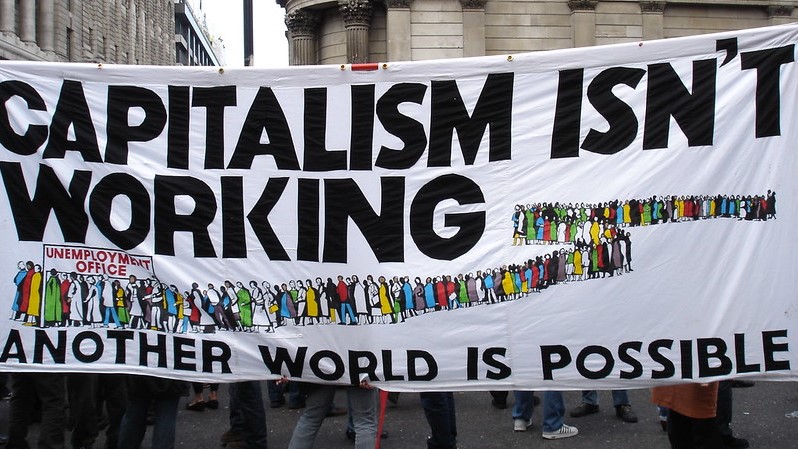
Our Economy of Violence
The specifically human form of aggression,
violence, is closely connected to the awareness of death,
which is exclusively human.
The economy of violence
is ruled by the logic of accumulation.
The more violence you exert,
the more powerful you feel.
Accumulated killing power [Tötungsgewalt]
produces a feeling of growth, force, power, [Macht]
— of invulnerability and immortality.
The narcissistic enjoyment
human beings take in sadistic enjoyment
is based on just this increase in power.
Killing protects against death.
By killing you arrest death.
An increase in killing power
means a reduction in death.
The nuclear arms race also mirrors
the capitalist economy of violence.
Accumulating killing capacity
is imagined as a way of accumulating
a survival capacity.
-Excerpt, Capitalism and the death drive
by Byung-chul Han p. 6
Several days ago I read a new report on economic growth. “Gang-busters” would be a fair description of how the economy is doing. GDP growth for 2021 was 5.7 percent with the government providing 6 trillion in pandemic relief. You’d think that everyone is sure to benefit, the pain of covid restrictions assuaged with those growth numbers.
There is an antimony behind the GDP numbers. The “one per-center” class has never done better, wealth has skyrocketed. For the working class, those who staff restaurant kitchens, work in the Amazon warehouses, drive to deliver goods and food purchased via the internet, — the suffering intensifies. Wages for workers have been depressed for thirty years, The annual inflation rate reached 7% in the last month of 2021. The cost of gasoline, food, and rent press hard upon the hourly wage worker. The Federal minimum wage is $7.25, and taxes withheld will take about one third of that.
The conclusion to be drawn: capitalism is a rigged system. The system produces great accumulation of wealth for the few, and “just getting by” for the many. The equation is balanced however. A logic of accumulation is at work. Accumulation, — I survive, feel immortal, at your expense.
It’s bad for economic growth when so many New Yorkers are unable to find a good-paying job, afford rent or access the kinds of opportunities that can pull them out of poverty. It’s destabilizing, and it feeds into the broader conversation that city officials are having right now around how to deal with the overlapping crises of homelessness, mental health and substance abuse.
— excerpt New York Times 1/31/2022